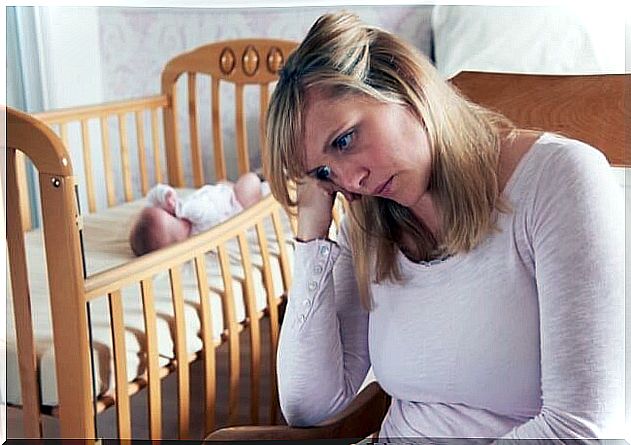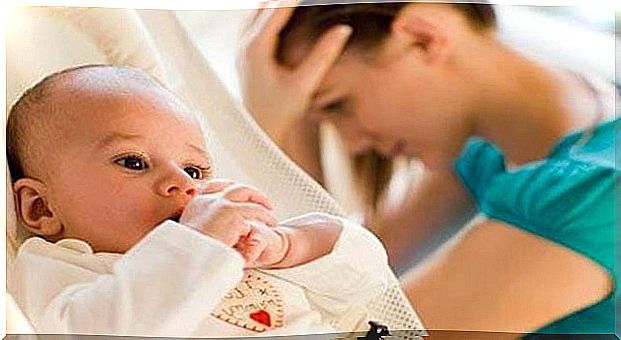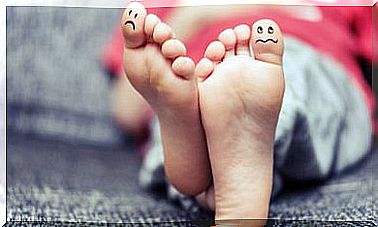9 Symptoms That Indicate That You Suffer From Postpartum Depression And Anxiety

The increase in women suffering from depression and anxiety is very alarming. Depression is especially feminine, since for a depressed man there are two women with depression. Women who suffer from it must recognize that they have a problem in order to seek help.
These types of diseases are usually more common than you think. Symptoms can present in different ways. A person cannot necessarily have all the symptoms at once. 10% of the population suffers from depression to varying degrees.
Causes of depression and anxiety?
There is no cause that determines it, but a combination of factors that determine this disorder. Researchers highlight it can pose a significant risk, if you suffer from depression or anxiety in pregnancy.
It is understandable on the one hand, that the woman feels vulnerable after having a baby. This can be due to different hormonal factors. It is understood that 80% of women have experienced some sadness after giving birth. Apparently this is an emotional reaction, which can last for a week.
However, when symptoms are at least two weeks old, postpartum depression can be diagnosed. This is curable if symptoms are identified early.
Mothers often feel much better by getting a little rest. In this sense, everything can improve if the mother has help to take care of the baby. When depression and anxiety last it can put her and the baby at risk. Sometimes this problem can affect a woman’s relationship with others.
Symptoms of postpartum depression and anxiety
It is important to know the difference between normal emotional changes after pregnancy and situations that are not. Society makes it difficult to admit and cope with the negative feelings that are created in motherhood. This is why many mothers are denied the possibility of expressing their feelings of anger, anger or frustration.
It can be very difficult for the people in your environment to understand, to be able to distinguish when in reality the woman in labor requires more support. To identify the true reasons for concern, it is necessary to observe the following symptoms.
Difficulty to sleep
From so much thinking about negative things, it will be difficult to conceive the dream. Especially if the baby wakes up during the night and the mother has no help. It may also be that the mother is the opposite, that she sleeps a lot. Either extreme is bad, it is not possible.
Crying
Mothers can feel sad periodically. It is understandable during the first few months after giving birth. But if the woman is crying all day, several days in a row for no reason, she should contact a specialist.
The anger
Feeling irritated, out of patience, out of control, is recurring. In some cases, anger can be a barrier to hide your fear and vulnerability. Women after pregnancy feel that no one understands them and this leads to anger.
Loss of interest in activities that were previously enjoyable
It is common not wanting to do anything, perhaps because of exhaustion, stress, sadness. Discouragement can be serious if it is not treated early.
Difficulty concentrating
This may be related to the loss of interest in things that previously seemed pleasant. Perhaps with the new experience of having a child, with so many things to learn, concentration is sometimes not very good. Forgetting some things, words, they are not even able to make a decision.
Changes in eating habits
Depression and anxiety cause women to overeat without stopping, or to reduce their eating. Every woman is different, but eating disorders are recurrent at this stage.
Tiredness
Women who do not have support in their needs and those of the baby feel exhausted, tired. They generally believe that the situation will never end and they feel weak. In these cases the fatigue is motivated by their emotional problem.

Afraid
Women can come to feel that fear and confusion take over. Not knowing what is happening with all the new things to experience, causes more anxiety.
They also fear that they will not be able to be a good mother or believe that they will harm the child. Similarly, fear arises from being aware of having a problem and not seeking help. This same feeling is related to the fear of being judged by others.
Unsafety
Some women think that they cannot take proper care of their baby. The feeling of guilt is latent, thinking that the child will be better off without it.
At the same time, it may happen that they experience negative feelings towards you. For example, cases of low self-esteem are frequent.









